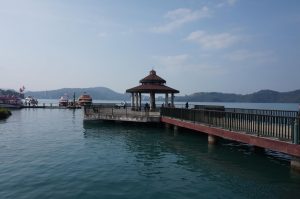Taiwan
Country facts
- Area: 36,179 sq km
- Capital: Taipei
- Main cities: New Taipei 4.0 MM || Taichung 2.8 || Kaohsiung 2.7 MM || Taipei 2.6 || Tainan 1.8
- Ethnicity: Han 95% || Indeginous 2.3 || other 2.7% Natural Resources: Marble || Cement
- Border countries: None (Taiwan’s an island)
- Religion: Buddhism 35.1% || Taoism 33% || Christian 3.9% || Other 9.3% || None 18.7% Language: Mandarin Chinese (official) || Taiwanese Hokkien || Hakka
Country Update
Due to the pandemic, Taiwan’s unemployment rate decreased to 4.11% – which was its highest rate in more than 10 years – leading to a loss of roughly 94.000 jobs compared to the previous year.
On a more positive note, Taiwan benefited from an increase in sales for some of their products in the ICT sector. With an export-oriented economy, Taiwan has seen a 4% GDP growth in the third quarter of 2021 and a major 40.4% growth in exports in March (US$40.26 billion), despite the economic impact of the pandemic. This is because Taiwan has seen a growing demand for its tech products, especially since most workers and students worked and studied online from home. Therefore, Taiwan is expected to remain economically stable during the pandemic.
More information on: Flanders trade & Taiwan News
Top 5 of the largest companies in Taiwan
 CPC Corporation Taiwan
CPC Corporation TaiwanCPC Corporation was founded in Shanghai in 1946 and transferred to New Taipei City, Taiwan in 1949 after the Chinese Civil War. The company is currently the largest state-owned enterprise and the core of Taiwan’s petrochemicals industry. The core business of CPC lies in the exploration and production of oil and gas; the company is not only the sole integrated oil and gas company in Taiwan, but also the only importer and supplier of natural gas. For more information: CPC Corporation Taiwan.
 Taiwan Power Company
Taiwan Power Company
The Taiwan Power Company, also known as Taipower, was established in 1946, and has been the major supplier of electricity in Taiwan. The company’s business focuses on the generation and distribution of electrical power through, for example, thermo, hydro and nuclear sources. Nowadays, the company also works on developing and generating more energy through renewable sources such as wind power and solar power. For more information: Taiwan Power.
 Chunghwa Post Co.
Chunghwa Post Co.
The history of Chunghwa Post can be traced back to the Customs Post Office, established in 1878 during the Qing Dynasty. The Customs Post Office was renamed as Chunghwa Post in 1912, after the Republic of China replacing the Qing Dynasty. Chunghwa Post transferred to Taiwan after the Civil War and had been a government agency until 2003, when it became a state-owned company. The company has approximately 1300 post office branches in Taiwan. In addition to its postal services, Chunghwa Post also provides banking and simple life insurance services to the public. For more information: Chunghwa Post Co.
 Taiwan Tobacco & Liquid Corporation (TTL)
Taiwan Tobacco & Liquid Corporation (TTL)The TTL was first founded as a government agency during the Japanese rule in 1901. It was later renamed as Taiwan Tobacco and Wine Monopoly Bureau in 1947. It remained as the monopoly of tobacco and alcohol industry until Taiwan joined the WTO and changed its name to TTL in 2002. The company’s most famous product is the Taiwan Beer, which long remains the best selling brew in Taiwan and serves as one of the iconic brands of Taiwanese culture. For more information: Taiwan Tobacco & Liquid Corporation.
 Taiwan Water Corporation
Taiwan Water Corporation
Taiwan Water Corporation was founded in 1972 by the then president Chiang Ching-kuo, in order to develop and unify the water supply system in Taiwan. As a government owned water utility, the company provides water supply and monitors water shortage, water quality, etc. For more information: FirstBank.
Disclaimer: It is important to note that only Taiwanese national (with only Taiwan citizenship) can apply to jobs and work for Taiwan’s state-owned companies. The information given here is to provide an insight into some of Taiwan’s largest state-owned businesses.

Strong employability skills for the Taiwanese Job Market
- Language skills (Primarily English, in addition to speaking basic Mandarin)
- Computer/IT skills (willing to learn new software depends on the needs)
- Intercultural skills (along with the experiences of studying/working abroad)
- Interpersonal skills (especially the ability to communicate
- Strong attention to details
Important Sectors
Taiwan has gone through periods of economic boom and decline throughout its history. Its economy saw an unprecedented increase after the mid-1960, which is globally known as ‘Taiwan Miracle’. During the Asian Financial Crisis in 1997, Taiwan was the only economy that still experienced growth while the rest of the Asia was facing an economic decline. The economy of Taiwan is considered one of the largest in Asia (ranked 7th), as well as in the world (ranked 22nd). Although the island has seen a decreasing trend in its economic growth in recent years given China’s economic rise, its diverse industries as well as high living standard has multiple times made it the top 1 destination for expats to work and live, according to surveys. Unlike its neighbouring countries, a significant proportion of Taiwan’s businesses comes from small and medium-sized businesses. Among Taiwan’s major industries are services, electronics, information technology, agriculture, and consumer products.
More information
Taiwan’s services sector contributes to approximately 69% of the country’s annual GDP, making it the largest sector in Taiwan as well as transforming Taiwan into a service-oriented economy.
![]() Information Technology/Electronics
Information Technology/Electronics
Taiwan’s has long been at the forefront when it comes to information technology industry. Among others, electronic components and laptops are the two most important industrial exports in Taiwan. Well-known electronics brands such as Asus, Acer and HTC are from Taiwan.
![]() Agriculture
Agriculture
Taiwan’s agricultural industry served as a strong foundation for Taiwan’s economic miracle back in the 1960s. Its main export products are rice, sugar, vegetables, tropical fruits, fish and pork. Taiwan is also the world’s largest exporter of orchids, with around 87% of orchids is from Taiwan. Approximately 24% of the land is used for agricultural industry.

Meeting Culture in Taiwan
Do not underestimate the importance of relationships and networking when doing business in Taiwan. Mutual trust, respect, accountability and reciprocity are the core elements of building relationships with Taiwanese. When it comes to business meetings in Taiwan, it often starts with having drinks, food, small talk and ended with gifts exchange. For Taiwanese, they highly value relationships between business partners and generally such relationships last long and continue even after a deal is made. In addition, giving gifts is very common when meeting (potential) business partners in Taiwan; so preparing a nice small gift can leave a good impression. However, be aware that do not prepare anything that’s lavish unless it is to reciprocate an expensive gift you previously received from your business partner.

Teamwork in Taiwan
Taiwanese people value harmony and they seek to maintain a harmonious atmosphere when working together. Given such a concept, along with a collectivism-oriented culture, having good relationships with your colleagues and your boss is considered essential in Taiwanese business culture. Taiwanese bosses generally don’t find individual personality or taking one’s initiative to work independently as something that stands out. Instead, working for the benefit of the whole group and being able to find a common ground with your fellow colleagues are something that Taiwanese value.

Feedback in Taiwan
No matter how your personal feelings are or how you see a person, Taiwanese people treat each other with respect and dignity. Saving face is an important concept when facing a situation where disagreements involved. Therefore, providing feedback in Taiwan will not be carried out in front of a group or anyone else. Most of the feedback given is generally positive and even if there if the feedback is something critical, it will be conveyed to you through a rather subtle and encouraging way.
Cultural tips in Taiwan
A well-crafted message is valued a lot in Taiwan. Taiwanese people see modesty, politeness and dignity as crucial elements when it comes to communicate one’s ideas and feelings to others. The fact that Taiwanese people pay much more attention to the context of the communication than the content of the communication leads to the communication style of being indirect, vague and subtle. Therefore, it is crucial for people from direct cultures where context is not highly emphasised to understand their messages or the way they convey might come across as rude and inadequate given lack of context.
When meeting people in a business setting, always be aware of how you address your counterparts and who you greet first. In Taiwan, the organisational structure of business is in general quite hierarchical, therefore it is important to greet the most senior or important person first if you know who they are. When addressing someone, remember to address that person with their government or corporate title followed by their surname. If that person doesn’t have a title, use honorifics followed by their surname. It is considered impolite and unprofessional to address their first name if you’re not invited to do so.
Job hunting in Taiwan
Keywords for the job search:
- Relationship-orientated
- Modesty
- Formality

Some examples of general questions that are often asked in job interviews in Taiwan:
- Tell me a bit about yourself.
- Why do you want to work for us?
- Where do you see yourself in five years’ time?
- How do you deal with stress?
- What is your biggest ambition and how do you see yourself five years from now?
- What are you strengths and weaknesses?
- Why should we hire you?
Graduation Level & Age
| Tertiary level | ||||||
|---|---|---|---|---|---|---|
| Bachelor’s equivalent (ISCED 6) | Master’s equivalent (ISCED 7) | Doctoral or equivalent (ISCED 8) |
||||
| First degree (3-4 years) |
Long first degree (more than 4 years) |
Second or further degree, (following a Bachelor’s or equivalent programme) |
Long first degree (at least 5 years) |
Second or further degree, (following a Bachelor’s or equivalent programme) |
Second or further degree, (following a Master’s or equivalent programme) |
|
| 21-22 | a | a | a | 23-24 | a | 27-32 |
Source OECD (2017)
* ISCED International Standard Classification of Education.
* ‘a’ data not applicable because the category does not apply
More information
Like most countries in Asia, there is a very high degree of competition across every sector, this holds true as well when looking at Taiwan’s educational system. In Taiwan, primary education is compulsory and lasts for 6 years. Kids generally start going to primary/elementary school at the age of 6 or 7, and all of them continue their secondary education when they turn 12 or 13. In Taiwan, secondary education is split into two parts – Junior high school and senior high school. The first part of the secondary education is mandatory as well, therefore students are obliged to be enrolled at junior high school according to the areas (cities, districts, etc.) they’re registered at. Junior high school lasts 3 years and most of the students are already very competitive during this stage of their education, given that all last year students need to take a senior high school entrance exam before they graduate, the result of which will determine which senior high school they go to. The competition remains, if not getting higher, after they start studying at senior high school. Students usually finish school at 5 pm, however, most of them continue either taking additional courses at cram schools or studying at the libraries. This is because they want to be prepared to achieve a satisfying result of the university entrance exam at the end of their third senior high school year. The distribution of students to universities is similar to that to senior high schools. Students are admitted to universities mainly based on how they score on each subject as well as their overall grades, with less attention paid to extracurricular activities. University entrance exam in Taiwan is very competitive!
Vocational education is very robust in Taiwan, offered at secondary level where senior high schools (often called vocational high schools) offered a variety of trainings tailored made to the interests and needs of students. The focus of such schools are more practical and skilled-based compared to regular senior high schools. After finishing their degree at vocational high schools, students either enter the job market, continue studying in a higher education, or start their own businesses. In recent years, the government of Taiwan has made quite some investments into vocational education to provide students an alternative to the traditional sense of education.
Average starting salary in Taiwan
It heavily depends on which sector you want to work in, but a good indicator is Undergraduates: 30,422 NTD/month || Graduates: 49,017 NTD/month || PhD graduates: 67,495 NTD/month.
Disclaimer: The mentioned amounts are an averaged total provided by the Ministry of Labour in Taiwan in 2019. Starting salary can be different based on various factors, such as your degree, work experience, industry, and the size and origin of your company. Used the amount(s) mentioned above as a base to negotiate.

Internships in Taiwan
Doing an internship in Taiwan is not as common among Taiwanese students as other countries. Students in Taiwan generally only focus on their studies or work alongside their studies to earn some pocket money. That said, students who do an internship are most of the time due to the requirement of their degrees or out of their own interests. However, this doesn’t mean that there aren’t many internship opportunities in Taiwan. Most prominent internship opportunities are offered by international businesses or public sectors, and they do pay allowance that can cover part of your living expenses. However, it is important to note that internships at public sectors are usually targeted at Taiwanese students.



